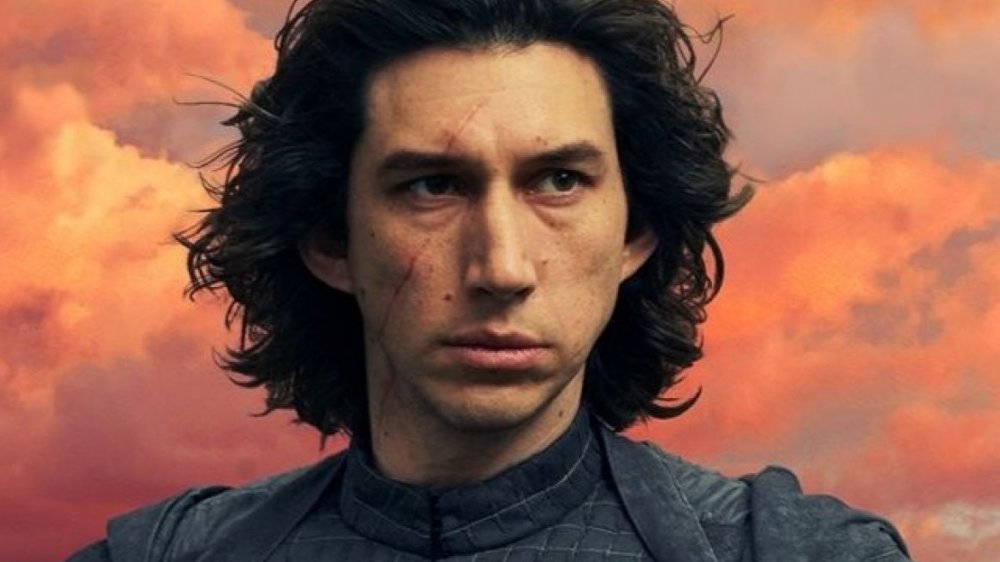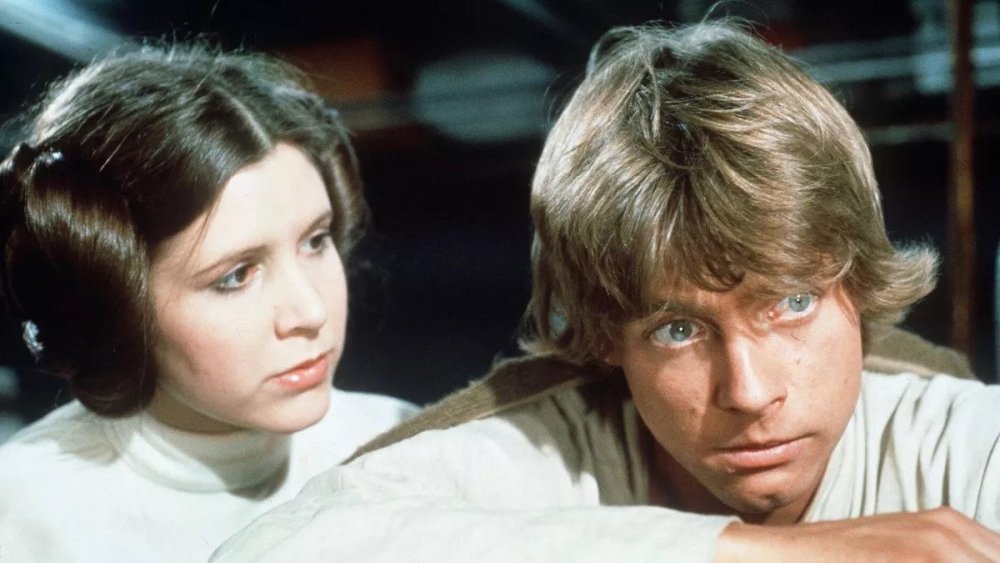J.J. Abrams Explains Kylo Ren And Rey's Relationship
Well, that explains that... sort of.
Star Wars: The Rise of Skywalker writer/director J.J. Abrams was recently captured on video explaining to a group of fans the oddly undefined relationship between Kylo Ren (Adam Driver) and Rey (Daisy Ridley) in the sequel films. Interestingly, in doing so, he seems to have poked a rather large hole in one of the most common criticisms of the final three entries in the Skywalker Saga. Please be advised that spoilers for Rise of Skywalker follow.
Ever since the release of Star Wars: The Force Awakens, there have been a significant subset of fans (call them the "Reylo contingent") who have been pining to see the Resistance fighter Rey and the First Order villain Ren just admit their feelings for each other, already. There has always been a strong chemistry between the two which could easily be taken for a romantic undertone to their relationship — despite the fact that for most of the sequel trilogy, the two were playing for opposite teams.
During the events of Rise of Skywalker, Ren is moved to discard his old lightsaber and reclaim his original identity as Ben Solo, son of Han and Leia and the former pupil of Luke Skywalker before his turn to the Dark Side. After Rey is seemingly killed when she dispatches Emperor Palpatine by deflecting his Force lightning back at him with Luke and Leia's old lightsabers, Ren/Solo redeems himself by transferring his life force to her, saving her life; before he becomes one with the Force, he kisses her, seemingly vindicating every fan who ever insisted that there was something going on between those two.
According to Abrams, though, that something wasn't what we might have though it was. His off-the-cuff explanation was captured by Twitter user @rizeofkylo, and it may make you cringe just a little: "There's as much of a brother and sister thing with Rey and Kylo Ren as there is romantic," he said. "So it's not literally a sexual/romantic kind of thing. It's more like they're just bound together in this crazy, spiritual way. Again, felt romantic to me, but it was... It's like John Williams, if you listen to the — when he first wrote [Luke Skywalker's theme for the original Star Wars], it was a romantic theme for Luke and Leia. That was kind of what he was thinking, because he didn't know where it was going."
Okay, we're honestly not sure if that clarifies the relationship, or muddies the waters even further. The Reylo contingent and the rest of the Star Wars fandom will likely interpret Abrams' remarks to support their own respective feelings on the matter, and somehow, we get the feeling that this is pretty much all the filmmaker will have to say on the subject lest he come off as a supporter of romantic relationships between siblings. He may be a pretty good storyteller, but it sure seems like words just fail him sometimes.
How does Abrams' explanation deflate criticism of the sequel trilogy?
Even more so than the question of whether Rey and Ren had the hots for each other, what interests us most about Abrams' remarks is how they kind of tear a very common (and, frankly, somewhat justified) criticism of the Star Wars sequels to shreds. You'll recall that Abrams directed The Force Awakens, then handed off The Last Jedi to Rian Johnson; Abrams was then recruited to finish off the trilogy after the director who was originally attached to Rise of Skywalker, Colin Trevorrow, departed due to creative differences. (Those differences weren't that great, though; Trevorrow still received a story credit on the flick.)
For those keeping score at home, this means that Lucasfilm parent company Disney's original plan was to have a different filmmaker contributing each of the sequel films. It's also been noted that many of the bold narrative choices made by Johnson in The Last Jedi were kind of undone by Abrams with Rise of Skywalker (the issue of Rey's parentage, for example).
All of this has led to the observation that Disney began work on the sequel trilogy with no overarching plan for how the narrative would go, instead just kind of winging it and hoping that each new filmmaker would seamlessly pick up from where the last left off. The case could be made that Disney should have known better; look at its other high-profile subsidiary, Marvel Studios, which has crafted the highest-grossing film franchise in history under the guiding hand of one guy (Kevin Feige) tasked with making sure that the overall narrative remains relatively unified.
Abrams, however, brings up an interesting point: that the original Star Wars trilogy, those films most beloved by the fandom, also didn't have its grand design in place from the start. Indeed, many of the key plot elements — such as Darth Vader being Luke's father, and Luke and Leia being brother and sister — fell into place pretty late in the game. This is why Star Wars: The Empire Strikes Back — widely considered to be the best movie in the Skywalker Saga, and one of the greatest science fiction films of all time — deigned to give us the sight of Luke and Leia, whom we would learn in the next movie were not only brother and sister but twins, engaged in a passionate smooch.
All of which is to say: look, fans, we can all gripe about the sequels' narrative not being consistent, but let's apply a little consistency ourselves. The flicks may have been a bit confused about Rey and Ren's relationship, but at least they never forced us to watch twin siblings making out.

